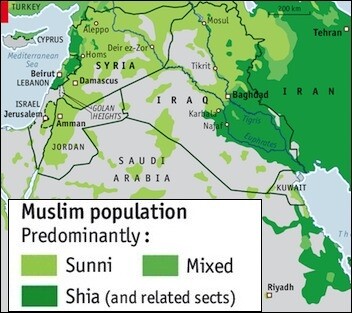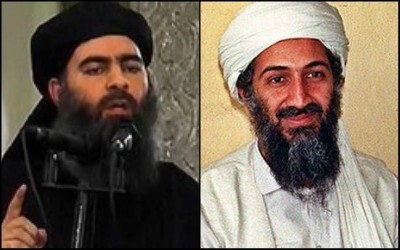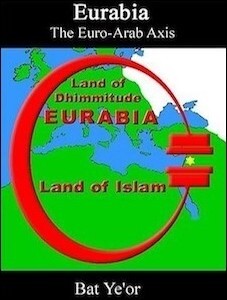With the fall of Raqqa, what is the future of Syria?
ISIS has been a minor factor in Syria for over a year; the real battle is between the many powerful states active in the country, both regional (Iran, Turkey, Israel) and international (Russia, the United States). The fate of Syria depends on their kaleidoscopic relations.
By making them aware that a powerful message can do more damage than planning, funding, and arming.
In order to build a corridor to Lebanon, Iranian-backed forces must conquer and hold majority Sunni areas. |
What is the future of chemical and biological weapons in Syria. Are they a potential threat to Israel and Europe?
Syrian weapons of mass destruction are an immediate menace to the world.
Yes, the implosion of Iraq and Syria to the west and Afghanistan to the east present enormous opportunities to Tehran.
It should lie low but signal clearly its red lines; that is what Jerusalem is doing.
The Khomeinists seek to spread their interpretation of Islam alike to all Muslims and non-Muslims, to make Iran a world-dominant power through force (weapons of mass destruction), economics (oil and gas), and ideas (Islamism).
Unless things change, Sunnis appear not to have a future in Syria – and neither do Christians nor Yazidis.
ISIS is a minor issue today; the major question is how the powers now present in Syria will resolve matters among them. I am pessimistic and expect many more refugees will be spilling out of Syria.
Europeans should take control of their borders while urging Middle Eastern migrants to head toward Saudi Arabia and other wealthy states with whom they share a culture.
Yes, a weakened ISIS will likely seek alliances with other extremist Islamist organizations.
Black & white, ISIS & Al-Qaeda. |
How do Hezbollah, Hamas, Al-Qaeda, and ISIS differ?
All are Islamist and driving toward the twin goals of imposing Islamic law (Shari’a) and building a caliphate. But each has its specific philosophy, goals, tactics, and (especially) leadership.
The differences are daily diminishing. The main one is that Islamist threats against Israel are more widely articulated whereas those against Europe and the United States are more subtle.
All three have been slow learners but Israelis have had more opportunity to understand what they face and so lead in terms of awareness. Americans are less myopic than Europeans, but only slightly so.
Yes, but it requires restricting civil liberties to fight the Islamist enemy.
Protection against jihadi violence is important but this should not distract from the much deeper issue of Islamist penetration of Western societies.
Airport security is simple compared to maintaining Western civilization. Outside of Israel, it is generally dumb but jihadis seem to be even dumber, so current practices appear to suffice.
Yes, there is no escaping this equation. I believe in the short-term curtailment of freedoms for their long-term survival – that’s what happens in every time of war.
Once skeptical of this argument, I now find it convincing. |
What are the long-term risks of the unprecedented migration now underway to Europe?
The replacement of European civilization with Islamic civilization.
When Bat Ye’or first proposed this theory in 2002, I was skeptical, not believing in a purposeful conspiracy to replace Western civilization with Islam.
Fifteen years later, and especially after witnessing the astonishing actions of Germany’s Chancellor Angela Merkel, I find it convincing.
I can see no other way to explain the spectacular unwillingness to recognize the damage caused by unfettered immigration and blind multiculturalism.






